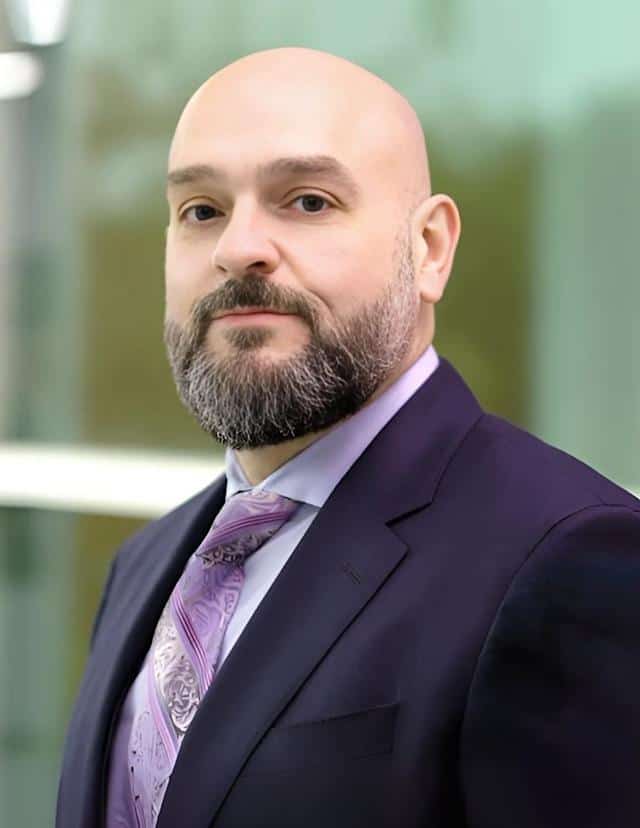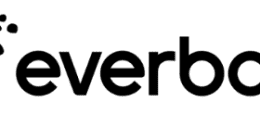Table of Contents Show
Here’s what separates operators from pretenders: real operators have scars. Frank Scarso’s scars nearly killed him, then they made him millions.
Stop Running From Your Past and Weaponize It
Most entrepreneurs whitewash their history. They craft origin stories that sound good on podcasts but lack teeth. Frank Scarso took a different approach: he turned addiction recovery into a competitive advantage in the cutthroat cash advance industry.
This isn’t about inspiration. This is about strategy.
When you’ve rebuilt your life from absolute zero, business challenges hit differently. A rejected deal? Tuesday. A key client walks? Wednesday. Market conditions shift overnight? Thursday. You’ve already survived worse. That psychological edge is worth more than an MBA from Harvard.
The cash advance space is brutal. High stakes, thin margins, and clients who are often one bad month from collapse. You need nerves of steel and judgment that doesn’t falter under pressure. Where do you develop those skills? Not in a classroom. You develop them when the stakes are your actual life.
The Authority Gap Nobody Talks About
Here’s the dirty secret about business authority: credentials mean nothing if you can’t execute. The market doesn’t care about your resume. It cares about results.
Frank built his business on honesty and integrity in an industry notorious for neither. That’s not coincidence. When you’ve been on the receiving end of predatory behavior, when you’ve lived through the consequences of bad decisions, you understand viscerally why ethics matter.
This creates real authority. Not the kind you claim in your LinkedIn headline. The kind clients feel when they’re deciding whether to trust you with their business capital.
Traditional banks reject small businesses constantly. Too risky. Insufficient credit history. Wrong industry. The list goes on. Frank’s company fills that gap, but here’s the key: they do it without exploitation. They provide capital that businesses can actually service. They structure deals that account for real-world cash flow fluctuations.
Why? Because Frank knows what happens when people get squeezed. He’s lived it. That experience translates directly into better business decisions.

Speed Without Recklessness: The Real Competitive Edge
Frank’s team claims to be “the fastest in the business.” In the cash advance world, that matters. Small businesses don’t have the luxury of waiting weeks for capital approval. When the oven breaks, the restaurant needs money now. When inventory opportunity knocks, retailers can’t wait for committee meetings.
But speed alone is amateur hour. Any fool can push money out the door quickly. The skill is being fast AND right.
This requires systems, judgment, and a team that understands both urgency and accuracy. Frank built this capability by focusing on fundamentals.
Know your numbers cold. Every deal gets analyzed through multiple lenses. Cash flow patterns. Industry benchmarks. Repayment capacity. Default risk factors. The team moves fast because they’ve internalized these frameworks, not because they’re cutting corners.
Understand the client’s actual situation. A cash advance isn’t always the right solution. Sometimes businesses need different capital structures. Sometimes they need operational fixes, not money. Having the authority to say “no” or “wait” builds more trust than saying “yes” to everything.
Build processes that scale. Speed at small volume is easy. Speed at scale requires discipline. Frank’s operation maintains rapid turnaround times because they’ve systematized every repeatable element and empowered the team to make decisions.
The Ownership Mentality Mandate
Frank tells his team to “treat the place like it’s your own.” Most leaders say this. Few actually build cultures where it happens.
Here’s why it usually fails: employees aren’t stupid. They know it’s not their business. They see the ownership structure. They understand who takes home the profits. Telling them to “act like owners” without creating actual ownership psychology is insulting.
Frank makes it work by connecting individual actions to tangible outcomes. Every deal closed keeps a small business operating. Every smart “no” protects the company’s reputation and capital base. Every client relationship strengthened creates recurring revenue and referrals.
This isn’t about equity stakes or profit sharing, though those can help. It’s about making the connection between daily decisions and real-world impact crystal clear. When your team understands that their work directly affects whether a restaurant stays open or a retailer makes payroll, the engagement level shifts.
Financial Literacy: The Non-Negotiable Foundation
Frank’s advice to business owners cuts straight to the bone: make every penny count.
This sounds basic. It is basic. It’s also where most entrepreneurs fail spectacularly.
Revenue is not profit. Growth is not success. Activity is not progress. These distinctions separate businesses that survive from businesses that thrive.
Frank sees this constantly in his lending operation. Businesses with strong top-line revenue but disastrous cash management. Owners who confuse being busy with being profitable. Companies that grow themselves straight into bankruptcy because they don’t understand working capital requirements.
The fix isn’t complicated. Know your actual margins. Not your estimated margins. Not your “should be” margins. Your real, verified, audited margins on every product and service.
Understand your cash conversion cycle. How long does it take for a dollar spent to become a dollar earned? Most business owners have no idea. That ignorance kills companies.
Track metrics that matter. Vanity metrics feel good but accomplish nothing. Focus on numbers that directly tie to profitability and sustainability.
Build financial buffers before you need them. The time to secure capital is when you don’t need it desperately. Desperation destroys negotiating power.
These fundamentals aren’t sexy. They won’t go viral on social media. But they’re the difference between building a business and running an expensive hobby.
Resilience as Strategic Advantage
Frank returns repeatedly to one concept: resilience. Life is always a lesson to be learned, especially the hard lessons.
Business resilience isn’t about positive thinking or motivational quotes. It’s about the capacity to absorb hits and keep moving forward.
This capacity comes from experience, particularly painful experience. When you’ve genuinely rebuilt from zero, setbacks register differently. You’ve already proven you can recover from worse. That knowledge changes how you operate under pressure.
Most entrepreneurs haven’t tested their true resilience. They’ve faced challenges, sure, but not existential ones. This creates fragility. The first real crisis, a pandemic, a market crash, a key partner departure, exposes how little psychological foundation they’ve built.
Frank’s recovery background gives him tested resilience. He knows he can rebuild because he’s already done it. That confidence translates into better decision-making under pressure, stronger risk management, and the ability to make hard calls when necessary.
The Personal Stakes Behind Professional Success
Frank describes the past year of his life with one word: positive. He’s becoming a grandfather. These milestones carry weight for anyone, but especially for someone who once wasn’t sure they’d make it to tomorrow.
Recovery from addiction doesn’t just teach you how to say no to substances. It teaches you how to rebuild from nothing. How to face brutal truths about yourself. How to show up when every fiber of your being wants to quit. These aren’t skills you pick up in business school. They’re forged in the fire of personal crisis, and they translate directly to the battlefield of entrepreneurship.
The Cash Advance Model Done Right
Frank’s business model is straightforward: businesses receive upfront capital and pay it back through a percentage of their daily credit card sales. No fixed monthly payments. No crushing debt if sales slow down. It’s flexible capital for businesses that operate in the real world, where cash flow fluctuates and unexpected expenses pop up constantly.
What sets Frank apart isn’t just the product. It’s the approach. He prides himself on honesty. In an industry where predatory practices make headlines, that matters.
The relationship between lender and borrower can be adversarial or collaborative. Frank chooses collaborative. He understands client needs because he’s taken time to learn their businesses. This isn’t just good ethics. It’s good business. Clients stick around because they feel heard, not processed. They come back because the relationship matters, not just the transaction.
Building Teams That Actually Care
Frank’s philosophy on team building centers on ownership mentality, but it goes deeper. He’s created an environment where people understand their impact on the business and on clients’ lives. Every deal closed represents a small business that gets to keep operating, hire staff, or expand. That’s meaningful work.
The culture Frank builds isn’t about ping pong tables or casual Fridays. It’s about creating an environment where people see the direct line between their daily efforts and real outcomes. When that connection is clear, engagement becomes natural rather than forced.
Vision for Sustainable Growth
Frank’s vision for the future centers on sustainable expansion. Not the venture-capital-fueled, grow-at-all-costs model that dominates headlines. Sustainable growth means scaling operations while maintaining quality, expanding the team without diluting culture, and increasing deal volume without sacrificing client relationships.
This approach won’t make for splashy headlines or viral LinkedIn posts. It won’t position Frank as the next unicorn founder. But it builds a business that lasts, serves clients well, and provides real value in the market.
The Playbook for Building Real Authority
Frank’s journey reveals a framework any entrepreneur can apply.
Extract maximum value from adversity. Your worst experiences contain your most valuable lessons. Mine them ruthlessly. Turn pain into insight, then insight into strategy.
Build authority through execution, not credentials. The market rewards results. Focus obsessively on delivering value, and authority follows naturally.
Create speed without sacrificing quality. Systems and expertise enable rapid execution. Build both deliberately.
Develop real ownership psychology in your team. Connect daily actions to meaningful outcomes. Make impact visible and tangible.
Master financial fundamentals before chasing growth. Profitable businesses beat rapidly growing but unprofitable ones every time.
Build psychological resilience as a strategic asset. Test yourself. Face hard challenges. Prove to yourself that you can recover. That proof changes everything.
The Bottom Line
Frank Scarso’s success in the cash advance industry isn’t accidental. It’s the direct result of turning personal adversity into business advantage, building systems that balance speed with accuracy, and creating a culture where people understand their impact.
This is how you build authority that matters. Not through personal branding exercises or thought leadership content. Through execution, integrity, and the kind of resilience that only comes from surviving genuine adversity.
Your past failures aren’t liabilities. They’re your most valuable assets if you’re smart enough to leverage them properly. Frank proved it. Now it’s your turn.





